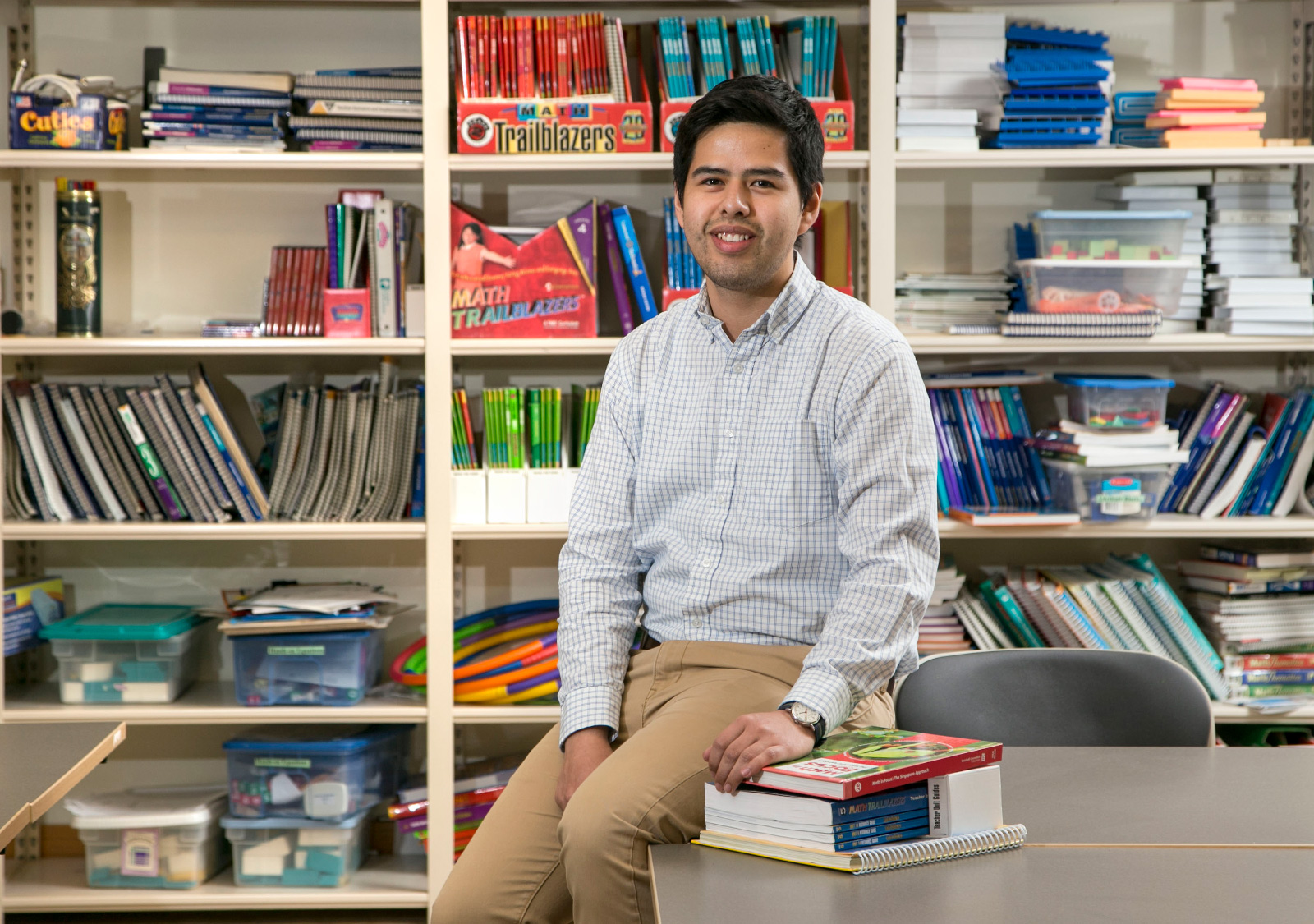CHICAGO — At a young age, Erik Martinez learned that a strong education was worth extra effort, even if it meant crossing a border. For six years, Martinez and his brother made the journey from their home in Mexico to El Paso, Texas, to attend school and stay with their grandmother.
“Every week my mother would take us to the U.S.-Mexico border and we'd walk over the international bridge, a cement walkway that spans the two countries, waiting sometimes one or two hours in line to enter the country,” Martinez said. “It was doing this that made me realize the importance of education. Going through this journey for six years really impacted me to want to become a teacher someday,” he said.
 The Vincentian mission: Serving others
The Vincentian mission: Serving others
When Martinez first learned about DePaul University’s College of Education program, where he will be graduating this June with a Bachelor of Science in Elementary Education, he heard about the great connections it had to the schools in Chicago. However, another thing made the program stand out: the emphasis on service.
“Service learning was a big thing for me in high school, since I did a lot of it. So I wanted to find a way that I could continue that,” said Martinez.
Throughout his time at DePaul, Martinez participated in service immersion trips. One trip took him to the Navajo reservation in Tuba City, Arizona. There, he had a chance to experience life on the reservation and listen to the stories of the Navajo people.
“The Vincentian mission instilled in me a desire to serve others, especially the voiceless. The mission has helped me understand my place and voice in the world as a college-educated male. I understand that, because of my education, I am in a position of privilege, but it also comes with responsibility. I have the responsibility to help others and get them where they need to be to succeed.”
Inspiration for bilingual education
Martinez established a solid foundation for teaching in DePaul’s Bilingual-Bicultural Education program. He learned the history and policies behind the bilingual education system and felt connected to the work immediately.
“I loved the faculty because they were so passionate about what they taught,” said Martinez. “It was because of this program that I was really inspired to teach bilingual education.”
Armed with this knowledge, Martinez traveled to Peru last summer to teach English. His students ranged from kindergarteners to high school seniors. In the younger grades, Martinez was able to teach the students basic words from the English language. In the higher grades, he would assist teachers by helping the students with pronunciation. “It was tiring but very rewarding,” said Martinez. “Having that experience actually prepared me for the rigors of student teaching.”
Plans for the future
Upon graduation, Martinez plans to visit El Paso, Texas and Juarez, Mexico with his family. Martinez hopes to find a job in bilingual education and also has other plans to contribute to the canon of bilingual literature: He hopes to be a children’s book author.
He also dreams of opening up his own school, where he can provide to students the same kind of valuable education he experienced. “Teachers are a voice for children. Children usually do not have much say. By being a teacher, I can be that voice for them,” said Martinez.
Interested in bilingual education like Erik? DePaul College of Education's two-year Bilingual-Bicultural Education master's degree program offers both practicing teachers and those with a bachelor's degree in a field other than education the opportunity to support educational and social change for traditionally underserved students, families and communities.
Explore Bilingual Education